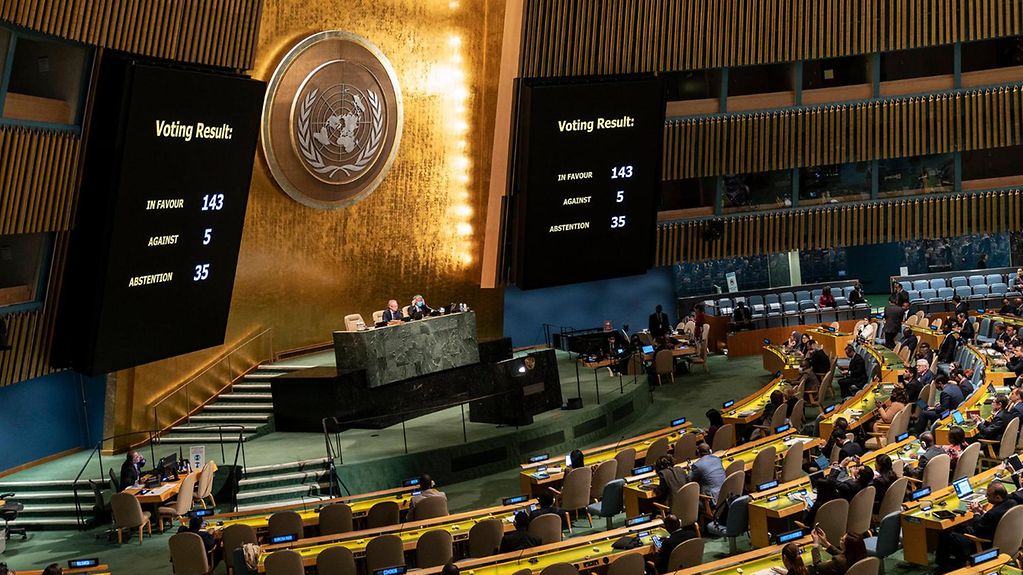United Nations condemn Russian annexation
In a clear gesture of solidarity, Germany and another 142 of the 193 United Nations member states, voted in favour of a resolution condemning the annexation of eastern Ukrainian territories by Russia.
2 min reading time

The annexation of parts of Ukraine is condemned and declared invalid in a United Nations’ resolution.
Photo: IMAGO/Pacific Press Agency/Lev Radin
At the United Nations General Assembly (UNGA), Germany condemned Russia's annexation of eastern Ukrainian territories: in addition to the Federal Republic of Germany, 142 other UN members states voted in favour of a resolution to this effect in the emergency session in a clear display of solidarity.
Whilst the UN General Assembly’s resolution is not binding under international law, it does highlight the international isolation of Russia. Besides Russia itself, only four other states – Belarus, Syria, Nicaragua, and North Korea – opposed the resolution. Another 35 member states abstained from the vote.
The UN General Assembly convened an emergency session for only the twelfth time ever in its history following Russia’s veto of a resolution by the UN Security Council that would have condemned the annexation of Ukrainian territories in late September. Russia has a power of veto in the Security Council but not in the UN General Assembly, which had already condemned the Russian invasion of Ukraine in an emergency session in early March.
The United Nations declare the sham referenda and annexations invalid
The resolution condemns the annexation by Russia and declares it invalid in addition to which it calls upon Russia to reverse the annexation of the partially occupied regions of Luhansk, Donetsk, Zaporizhzhia, and Kherson.
Prior to the vote, the representatives of Germany had called for condemnation of the annexations of the Ukrainian regions of Luhansk, Donetsk, Zaporizhzhia, and Kherson by Russia, which German diplomat Michael Geisler referred to as "sham referenda and Russia's illegal annexations", declaring them to be "null and void".
The USA had also spoken in favour of a clear condemnation of the annexations. "Today," said American UN Ambassador Linda Thomas-Greenfield, "Russia is invading Ukraine. But tomorrow another nation’s territory could be violated. It could be you. You could be next!" According to Thomas-Greenfield, the borders of any country – however large or small – are protected under international law.